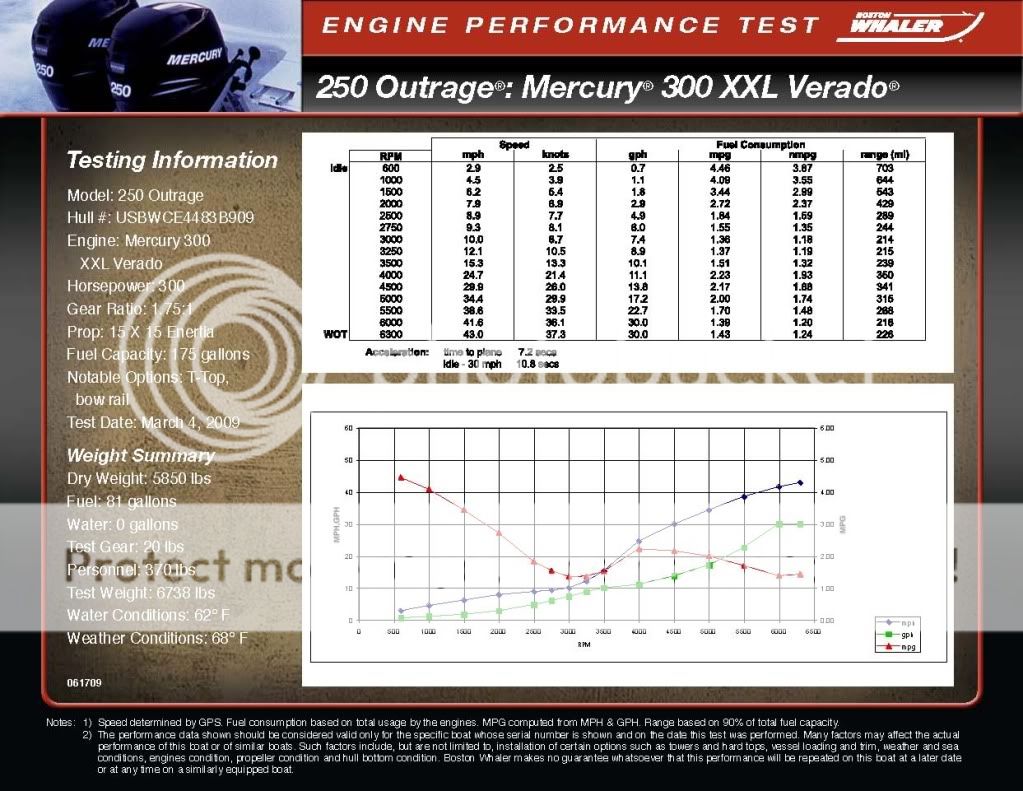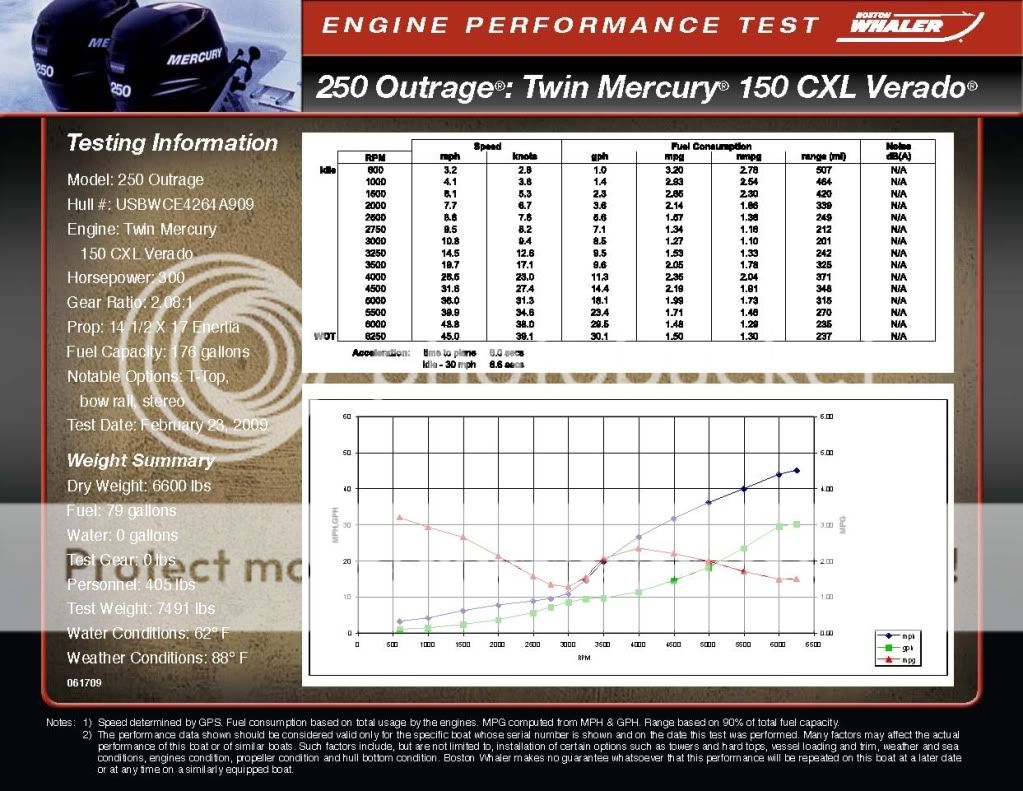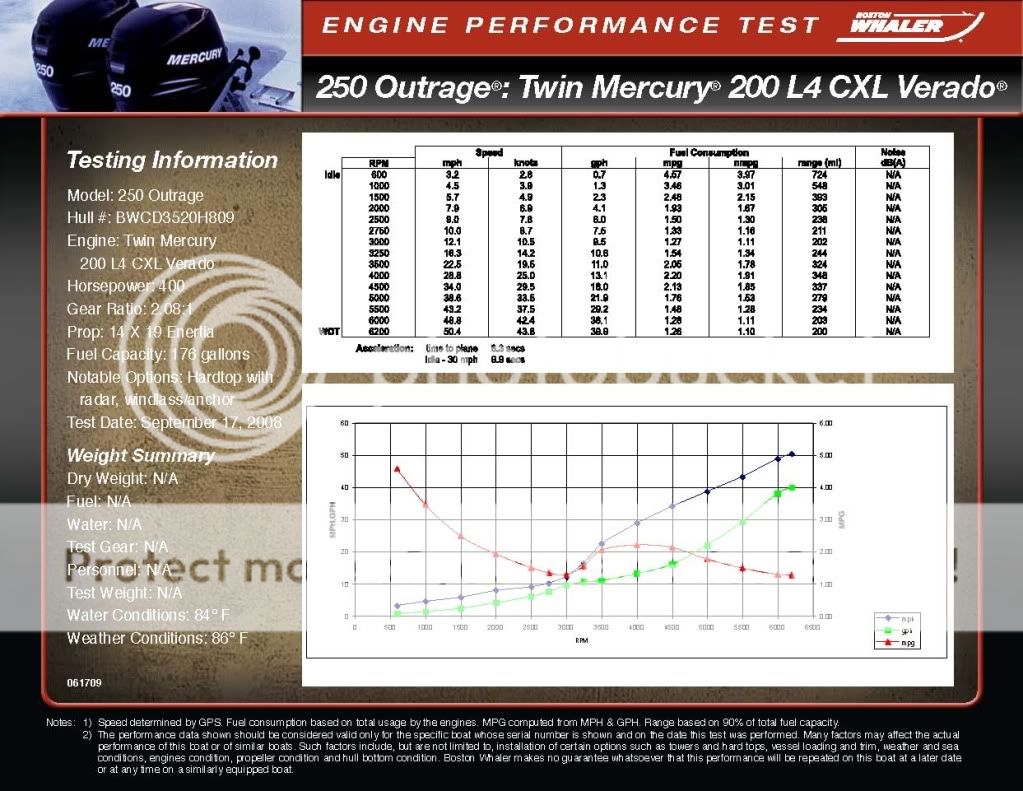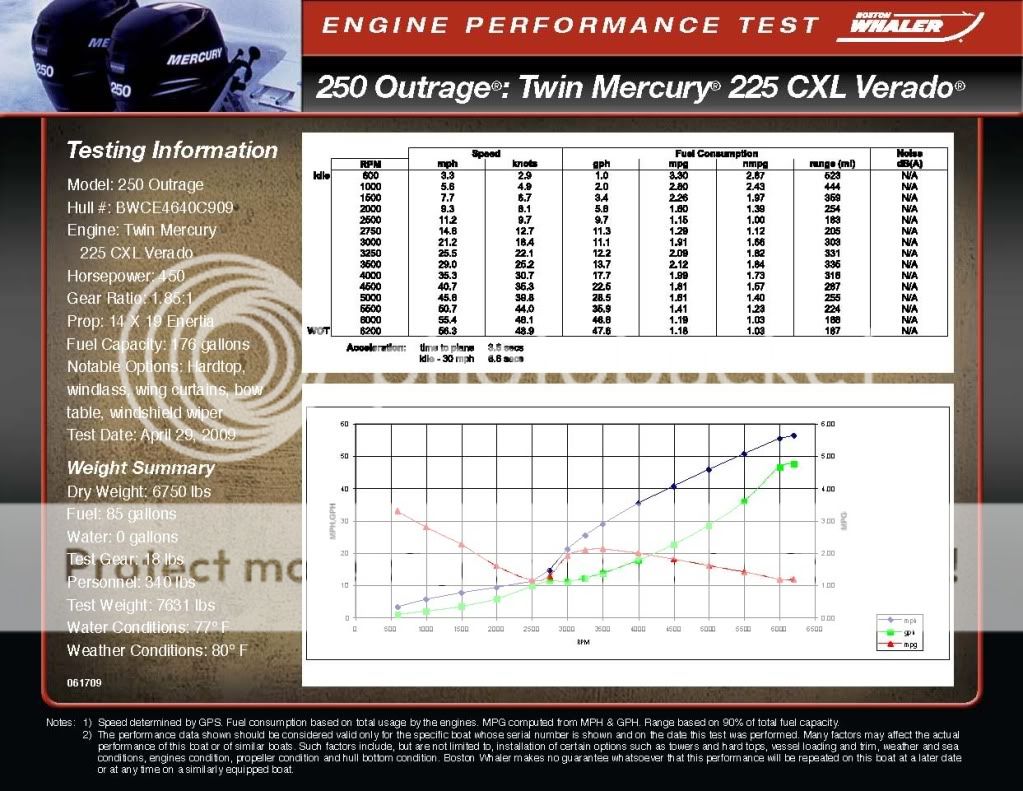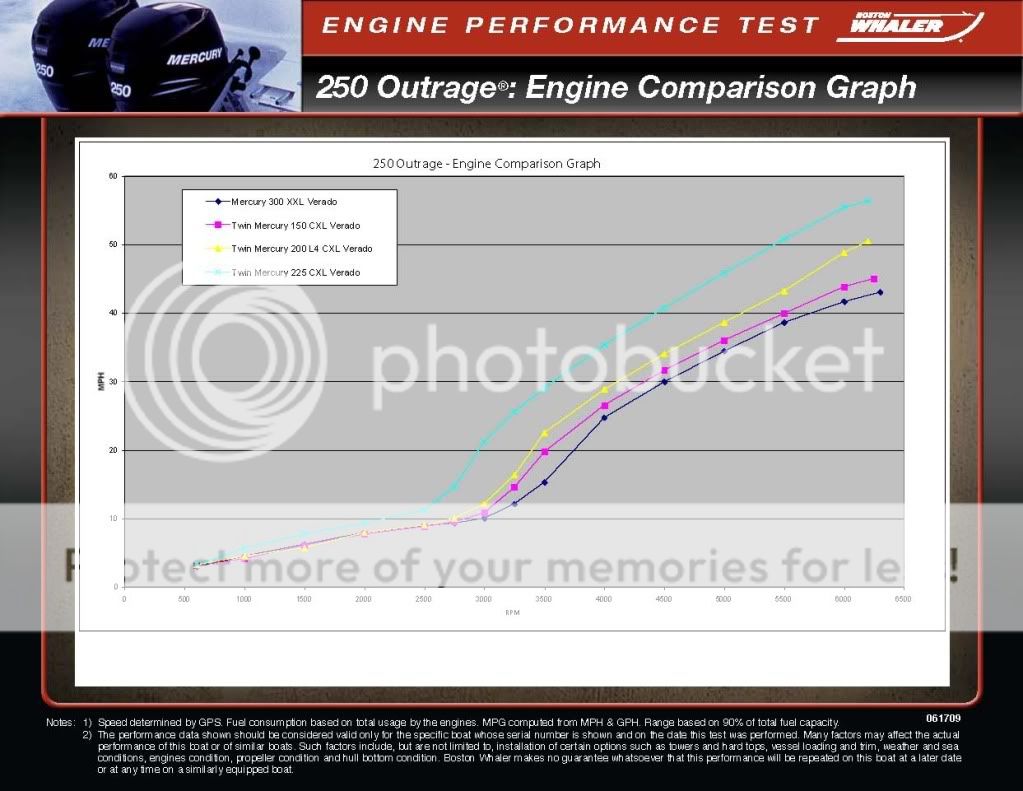quote:Originally posted by kelly
So basically your beaking IFL for asking who runs at WOT then saying ya i wouldnt run at WOT either...
No basically I am “breaking” on IFL for trying to “break” on me? Which is what and the way I took the "who runs at WOT" comment? And, as a “mechanic” it is very hard to believe he doesn’t either know or understand perforance charts. Or, the fact most outboards are designed to run WOT. Or, that your largest fuel consuption is at WOT, it only gets better from there. So, why even bring a comment like that up, not knowing or understanding how the "four forces" are relating?
Simply stating, "you will burn more fuel with twins because of more drag" is so incorrect! There is a lot more to it than drag and anyone familiar with "Four Forces" knows that. Without getting into a further long drawn out and radical debate, I chose to just post and let the performance charts speak for themselves! That is a lot easier than trying to debate the “Four Forces”, being - Lift, Thrust, Weight, and Drag, or explaing the ”Concept of Energy” and how they relate to the total "Aerodynamic Force" of an object. If one wants to learn of these, I suggest they either start doing a lot of reading, or do as I did… go to school! Yep, posting the performance charts was a lot easier!

Concerning WOT, there are several reasons I "usually" prefer not to run WOT. The main reason being is - fuel consuption. I do at times, especially when I want to clean the bottom off, works great! None of these reasons are due to the engines not being designed for it! There are actually a "lot" of engines designed for WOT, along with most motors. Why do people still change the oil in a car every 3000 miles, when most manufactures now recomnend 6000 miles? Same thought process! Sometimes we do and believe things simply because that is how we were taught and have always done it... Not because it is the correct or preferred way? This applies to a lot of us old farts. You will even find when you get out of school things you are now learning will be outdated and/or no longer apply. This will happen even prior to your graduation!

That's alright talking about ..."old thought processes" and “four forces”, especially the “Coefficient of Drag” and verses efficiency - you really want me to rock everyone's "old thought process" boat?
A Yamaha 9.9 @ 6000 rpm burns 3.9 Liters = 1.030271 Gallons (approx)
A Yamaha F115 EFI burns 0.5 @ 700, 4.0 @ 3500, 9.0 @ 5800
So if you are idling a F115 @ 700 rpm and have to run the 9.9 WOT, the 9.9 will be burning approximately 1/2 GPH "more" fuel. Running the 9.9 @ 3000 rpm your burn rate is approximately the same. Now throw in your - Lift, Thrust, Weight, and Drag elements, especially weight and drag - and please explain to me why one would have a "kicker and how much fuel one can be saving by spending that $3000+ for a "kicker" and hanging that additional weight on the stern? I can explain why I don't - I don't need one, as my twins idle down to my trolling speeds - just fine... and I am not concerned about hours on my engines, or needing a "kicker" for back-up! And btw... the kicker will probably "not" charge your batteries as they only put out approx 10 amps charge and most boats trolling with two downriggers use that, if not more!






